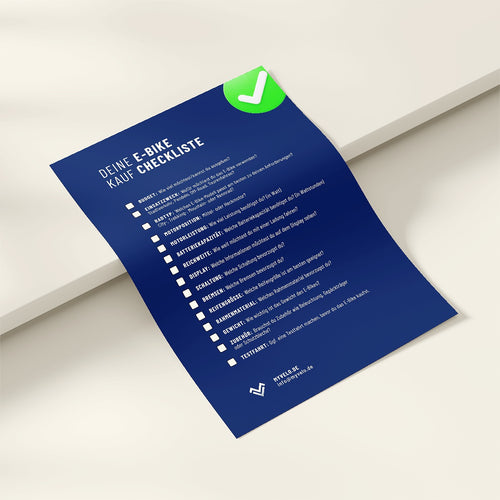

Proteins: The fuel for racing cyclists
When you think about a racing cyclist's diet, carbohydrates are often the first thing you think of. They are undoubtedly the main source of energy for long rides. But one crucial component is often overlooked: proteins . They play a key role in regeneration, muscle building and general performance. In this article, you will learn why proteins are essential for racing cyclists, which sources are best suited and how you can optimally integrate them into your everyday life.
Von Vincent Augustin |
3 minutes read time

Why are proteins important for racing cyclists?
-
muscle regeneration and building
Every ride on a racing bike puts strain on your muscles. Even on easy rides, tiny tears appear in the muscle fibers that need to be repaired. Proteins provide the necessary building blocks (amino acids) to repair this damage and strengthen the muscles. -
support of the immune system
Intense exercise can weaken your immune system. Proteins help you stay healthy and get back on the bike quickly by producing antibodies and other immune cells. -
hunger regulation and satiety
Anyone who trains a lot will know what it's like: constantly hungry! Proteins help curb your appetite because they keep you fuller for longer than carbohydrates or fats. This is particularly helpful if you're watching your calorie balance, for example in the off-season.
How much protein does a racing cyclist need?
The exact amount depends on your body weight and your training schedule. A rough guide:
- 1.2–1.6 g of protein per kilogram of body weight is sufficient for most recreational cyclists.
- Professionals and ambitious amateur cyclists who train intensively several times a week may need up to 2 g of protein per kilogram of body weight .
For example, if a rider weighs 70 kg, he should consume 84-140 g of protein per day.
The Best Protein Sources for Cyclists
-
Animal sources
- Eggs : Excellent biological value, versatile.
- Chicken and turkey : Lean and rich in high-quality protein.
- Fish : Salmon and tuna, for example, provide protein as well as healthy fats.
- Dairy products : Greek yogurt, cottage cheese or cheese are perfect snacks for on the go.
-
Plant sources
- Legumes : Lentils, chickpeas and beans provide protein as well as carbohydrates and fiber.
- Soy products : Tofu, tempeh or soy yoghurt are excellent alternatives.
- Nuts and seeds : Almonds, chia and hemp seeds in particular are rich in protein.
- Pseudocereals : Quinoa or amaranth score points with their complete amino acid composition.
Protein for Training
-
Before the exit
Before a long tour, the focus is on carbohydrates. A small amount of protein - for example in the form of yogurt or oatmeal with nuts - stabilizes blood sugar and prevents cravings. -
During the trip
Proteins play a minor role during the ride. On very long rides (e.g. four hours or more), protein snacks, such as energy bars with nuts or dried meat, can help protect the muscles. -
After the exit
This is the most important moment for your protein intake. Within 30 minutes after training, your body will particularly benefit from a combination of protein and carbohydrates, e.g.:- A protein shake with banana.
- Quark with honey and fruit.
- An omelette with whole grain bread.
Protein powder – useful or not?
Protein powder can be a practical supplement, especially during intensive training phases. But be careful: a large part of your needs should be covered by natural foods. Powders are ideal if you don't have time for a meal or if you are planning a longer tour.
Tip: Choose products without unnecessary additives and pay attention to the quality, such as whey protein (for quick absorption) or casein (slower release, ideal for the night).
Conclusion: Proteins as the key to success
For racing cyclists, proteins are much more than just a supplementary nutrient. They help you to recover faster, become stronger and increase your performance in the long term. With the right balance of carbohydrates, fats and protein, you get the most out of your training - and stay fit and healthy in the long term.




